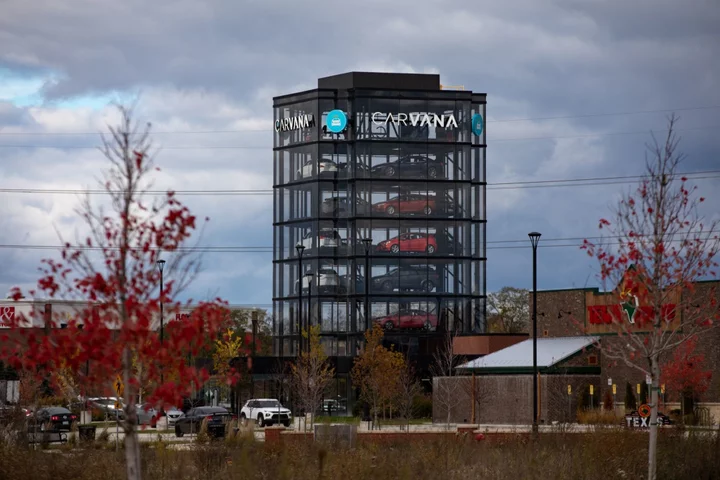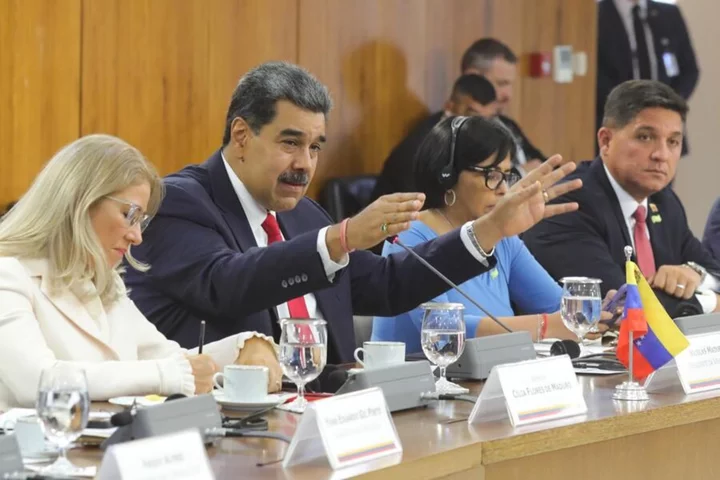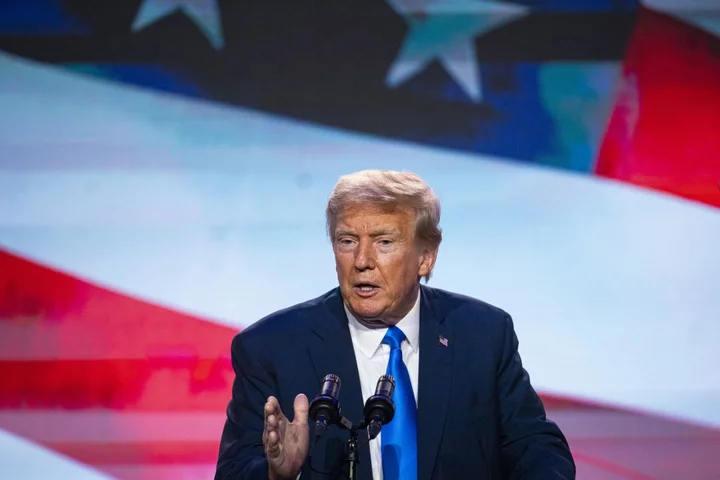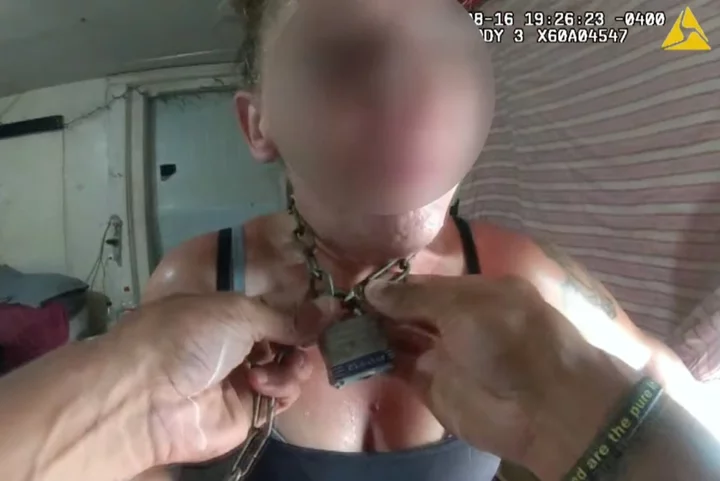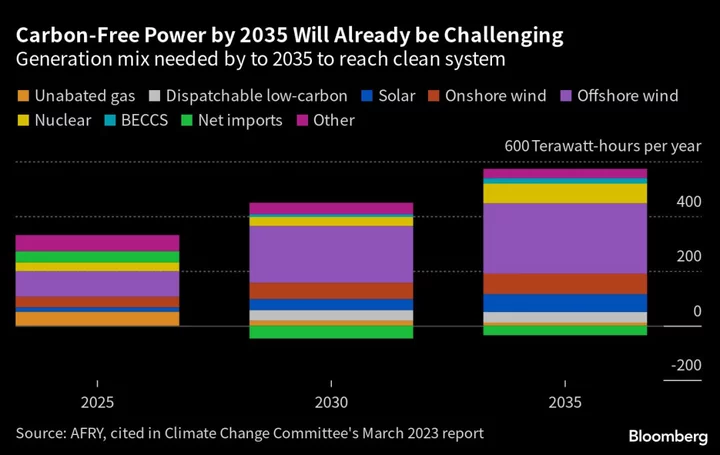Carvana Co. reached a deal to restructure debt and filed to sell as much as $1 billion of shares as the used-car retailer tries to regain its footing following a pandemic boom and bust.
The agreement with bondholders announced Wednesday will eliminate about 83% of Carvana’s 2025 and 2027 unsecured note maturities and lower required cash interest expense by $430 million a year for the next two years. The used-car retailer expects to reduce its total debt outstanding by more than $1.2 billion.
The deal sent Carvana shares soaring as much as 48% in premarket trading, though they pared gains after the company filed for the stock offering. It’s planning to sell 35 million shares and expects at least $350 million in gross proceeds.
The stock was up 18% as of 7:30 a.m. Wednesday in New York.
The moves are breakthroughs in Carvana’s efforts to get a handle on its debilitating debt load, following an ill-fated expansion during the pandemic. The company borrowed billions of dollars to capitalize on surging demand for used cars, only for the market to slow recently amid higher interest rates and rebounding new-vehicle production.
Carvana also reported better-than-expected quarterly earnings, beating estimates with a $105 million net loss. The deficit of 55 cents a share was less than half the $1.12 a share loss analysts were expecting.
What Bloomberg Intelligence Says
Carvana’s plans to reduce debt outstanding by $1.2 billion and issue common stock is a needed step in building a balance sheet that will enable it to be a going concern, though will likely lead credit raters to initially move their ratings to selective default.
— Joel Levington, BI director of credit research
Click here to read the research.
By reducing interest expense, the debt restructuring will help lower one of the company’s biggest hurdles to achieving positive net income, which Carvana has never posted. The company reported adjusted earnings before interest, taxes, depreciation and amortization of $155 million.
Interest expense of $155 million amounted to more than $2,000 per car in the period.
The new notes are secured, meaning they’re higher up in the repayment line. The notes are backed by the assets of Carvana and Adesa, the auction business the company acquired last year.
Apollo Global Management Inc. and Pacific Investment Management Co. banded together last year to gear up for a potential restructuring. The group opposed an earlier $1 billion debt swap the company launched in March, and later canceled.

